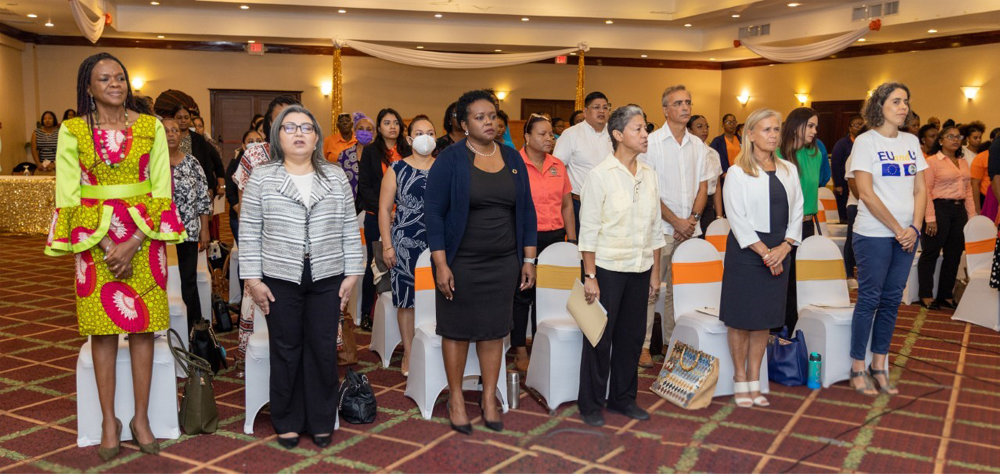by Kory Leslie ( Freelance Writer)
BELIZE CITY, Wed. Jan. 25, 2023
The National Women’s Commission has embarked on a communications campaign to engage the public on strategies to combat gender-based violence in Belize. The main focus of the campaign, entitled “the Social and Behavior Change Communications Strategy”, is social norms and behaviors which place women and girls at risk of abuse, and the aim is to sensitize the country on those behaviors.
During media rounds, the president of the National Women’s Commission, Thea Garcia-Ramirez, highlighted the focus areas of the campaign and provided a more detailed look at what it seeks to do, which includes “Going into government departments, but also going into schools, going into rural communities where we have some of our most vulnerable members of society.” According to Garcia-Ramirez, the current societal norms that need to be addressed which perpetuate gender stereotypes range from children’s toys to household activities around the house:
“When we have, for example, gender reveal parties, we have blue for boys and pink for girls, and just that signals to you that some people actually feel like colors have a gender, and they don’t. Toys don’t have a gender. Different people have different interests, and all interests are valid. Household chores don’t have a gender – life skills – household chores should be equally divided. That sort of thing we have come to normalize – only girls wash dishes and only boys take care of the yard. That feeds into a very patriarchal type of mindset. It perpetuates stereotypes and biases that we take to work,” she said.
The campaign launch also saw the participation of the Minister of Human Development, Hon. Dolores Balderamos Garcia, who has made it a part of the National Gender Policy to combat these behaviors that lead to gender-based stereotypes, inequality, and violence. During her conversations with the press, she alluded to the Belize Crime Observatory report which has showed an increase of over 20% in reported cases of gender-based violence between 2021 and 2022. This, the minister says, can be combated through a change of behavior at every level:
“In my remarks, we talked about the six major areas of the National Gender Policy: health, education, employment and the creation of health for women. And then the fourth one to show the importance of this is the fight against gender-based violence. The fifth one is women in power and decision-making – we need more women – and then institutional strengthening. One of the most important factors when we talk about this is that our belief, deep inside, that behaviors can change and that there can be changes in attitude. Not because I used to do something ten years ago in one way, I cannot change and do it better today. And fighting against gender-based violence, violence against women and girls, is something that we have to internalize,” she said.

